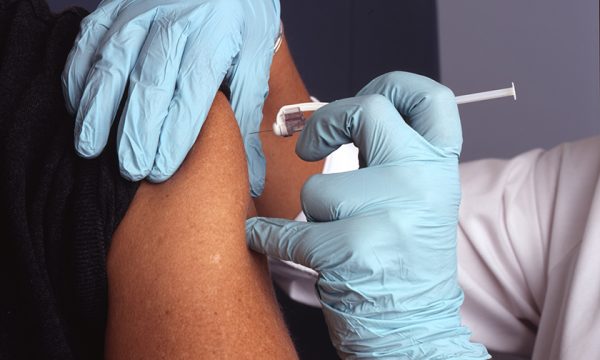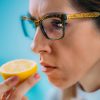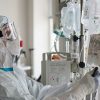 Could the covid vaccine “ruin the immune system” or cause infertility and cancer? Irina Yakutenko, a molecular biologist, science journalist, author of the book “The Virus That Broke the Planet”, analyzes 12 myths about the coronavirus vaccine.
Could the covid vaccine “ruin the immune system” or cause infertility and cancer? Irina Yakutenko, a molecular biologist, science journalist, author of the book “The Virus That Broke the Planet”, analyzes 12 myths about the coronavirus vaccine.
Myth 1. The vaccine invades the cells and begins to produce itself.
This is the goal for certain types of vaccines. For example, vector vaccines, such as Sputnik V or AstraZeneca’s vaccine, are a weakened common cold virus that carries the coronavirus gene, and this virus actually invades cells and begins to synthesize its proteins there – just like with the common cold. But these viruses cannot multiply or cause a cold, let alone covid. In the case of an mRNA vaccine (medicine from BioNTech / Pfizer and Moderna), a special mRNA molecule is also introduced into cells and begins the synthesis of the coronavirus spike protein.
There is nothing wrong with that, because this process is limited in time. It lasts for several days, after which the immune system destroys all cells into which these components have penetrated. The result of this intervention is the safe formation of an immune response.
In the case of vaccines based on protein components, for example, subunit or peptide components, as well as for inactivated vaccines, the synthesis of any foreign elements is generally impossible.
Myth 2. After vaccination, a person becomes infected with coronavirus and gets ill.
No. Fears that, by being vaccinated, we will get coronavirus and will get sick are groundless. Because neither in the case of vector vaccines, nor in the case of mRNA vaccines, we do not get the actual virus.
Among the vaccines that are already used in one way or another, only inactivated ones have the coronavirus infection. “Kovivac” from the Chumakov Center and vaccines of the Chinese companies SinoVac BioTech and SinoPharm were created according to this principle. Vaccines of this type represent a killed virus (more precisely, radically damaged, since viruses are not alive, which means they cannot be killed), which cannot synthesize anything.
There are also so-called live, or attenuated vaccines. They contain specially weakened coronavirus, which is also not capable of causing illness. However, so far there are no such vaccines in mass use.
Myth 3. The vaccine will affect the DNA and lead to gene mutations, because of this the person becomes genetically modified.
No, none of the vaccines are embedded in DNA. Researchers go to great lengths to rule out even the smallest possibility of such a scenario.
In inactivated vaccines, the virus is killed and inactive and, in any case, its genome is written on an RNA molecule, and not DNA, as in humans. Therefore, even if we assume that some virion in an inactivated vaccine turns out to be alive, it will not be able to integrate its genes into our genome. In order to rewrite RNA into DNA, special enzymes are needed that the coronavirus infection does not have. Viruses from vector vaccines are DNA viruses, but they, for their part, do not have the enzymes that could insert their DNA into the human genome. This is an active process, spontaneous embedding is so unlikely that no one seriously considers this possibility.
For the reasons described, RNA from mRNA vaccines cannot be inserted into the genome either. Moreover, vaccines of this type, in principle, do not penetrate the nucleus, where our DNA is located.
Myth 4. After getting the vaccine, a person becomes contagious because he or she is injected with the coronavirus infection.
No. Active coronavirus will only be administered in the case of live (attenuated) vaccines, but they have not yet been approved or registered anywhere, while only tests are underway. But even in vaccines of this type, the virus is weakened so much that it does not multiply to concentrations that are dangerous from the point of view of infecting other people.
And the rest of the vaccines are simply not coronavirus (except for inactivated vaccines, in which the coronavirus is killed). Vector vaccines are an adenovirus in which only one coronavirus gene is embedded, and the adenovirus is also modified, genes that are necessary to cause disease have been cut out of it, that is, this virus cannot multiply. No new viral particles are synthesized after administration of this vaccine.
mRNA vaccines are not a virus, but a special type of molecule from which cells can synthesize proteins. They synthesize them not directly from the genome, but through this intermediary molecule. Accordingly, mRNA carries information about only one protein, which is not enough to assemble a full-fledged virus.
Myth 5. Infertility can develop after vaccination.
This is a very old myth. Infertility cannot develop after any vaccination. Vaccine components do not enter our germ cells, from which sperm and eggs then develop. Moreover, a woman already has all her eggs from birth, they are not synthesized during her life. The coronavirus vaccines do not affect fertility in any way, because there are no mechanisms by which the virus could somehow affect this function.
Myth 6. A vaccine can cause cancer.
It is a very common horror story that exists in different versions. Basically, if you search the Internet long enough, you can find that just about anything can cause cancer. But this is not true.
A possible mechanism by which a vaccine could cause cancer is just a situation where a vaccine component would invade DNA and accidentally damage one of the genes responsible for protecting cells from degeneration.
But the vaccines against covid do not get into DNA, and there is no other mechanism by which they could cause cancer in nature. At least scientists have never been able to find it.
Myth 7. Everyone who gets vaccinated loses immunity.
Of course not. When people get vaccinated, they do not lose immunity, but develop it. A vaccine is a safe way to generate an immune response against a pathogen.
If you get sick with covid, that is, acquire immunity, so to speak, naturally, there is always a risk of dying or receiving a disability. But a vaccine is a safe way to develop antibodies and cellular immunity against various pathogens of even the most terrible diseases. It is our super-powerful weapon against diseases, the equivalent of which no one has yet been able to create.
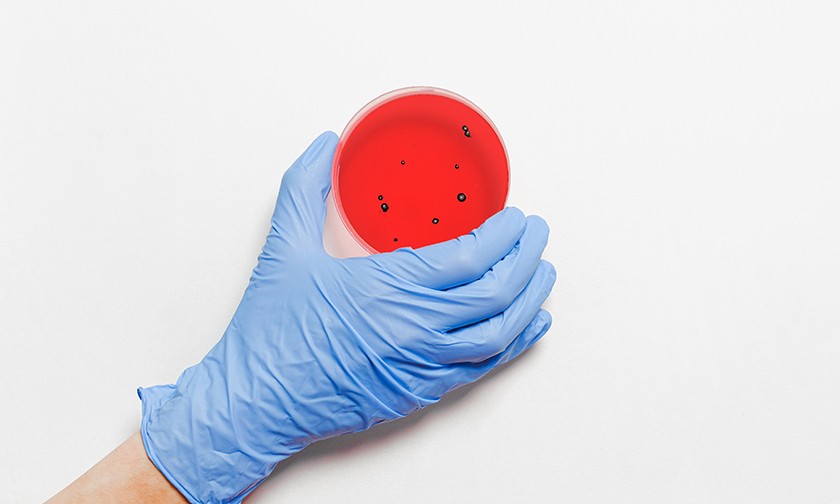
Photo: Anna Shvets / Pexels
Myth 8. If vaccination does not give an absolute guarantee that a person will not get sick, why then should one get vaccinated?
There is no 100% guarantee for any therapy. But the anti-coronavirus vaccine significantly reduces the chances of infection. This risk is not excluded, because the virus does not know that a person is vaccinated, and will jump onto his or her mucous membranes in the same way as on the mucous membranes of an unvaccinated person. But the immunity of those who got vaccinated recognizes this virus very quickly and destroys it. The only question is to what extent this virus will have time to multiply.
Vaccines that are not very effective produce an immune response that is not too strong or not too fast, allowing the virus to multiply to a significant concentration. Therefore, people can get mildly ill. But at the same time, vaccines exclude or radically reduce the risk of a severe course of the disease. This is one of the main goals of the vaccine. But many vaccines against coronavirus have been so effective that they significantly reduce not only the risk of severe covid infection, but, in principle, the onset of symptoms. That is, they prevent the virus from multiplying to concentrations sufficient to show signs of the disease.
In addition, there are serious reasons to believe that even if a person gets sick after vaccination, he will not have severe post-covid issues. Whereas after an illness, such issues can develop very often, up to a disabling state, when people cannot work.
In other words, it makes sense to get vaccinated for three reasons:
1. Elimination of the risk of severe course and death from covid, even if a person gets sick.
2. Radical reduction in the risk of even a mild course of the disease.
3. The development of herd immunity, which protects the population as a whole, preventing the virus from multiplying, including in those people who have already been ill.
Myth 9. The virus mutates, there will be other strains, the current vaccine will not work against them.
All the data available to date suggests that vaccines – at least those for which relevant studies have been conducted – provide sufficient protection even for strains that partially escape from immunity. That is, those who have recovered become infected with them, and post-vaccination immunity, according to laboratory studies, is enough to still prevent a person from getting sick.
According to the results of laboratory studies, the effectiveness is lower, but it is still such that it will prevent a person from getting sick, or at least prevent a severe course of the disease.
Vaccines, in contrast to the disease, give a more stable immunity with a high titer of antibodies. And they may be enough to protect against those strains that escape from the immune system.
Myth 10. People are injected with microchips through vaccination.
This is such a delusional assumption that I don’t even know how to choose the words to debunk it. Such ideas are something from the category of ideas about the existence of magic and witchcraft or the world government of the reptilians.
When scientists face this idea, they find themselves in a difficult situation, because such nonsense is very difficult to debunk. Moreover, any attempt at refutation plays into the hands of those who spread this nonsense, because it immediately allows them to say: “Ahhh, they make excuses, so there is definitely something behind this!” At the same time, it is useless to explain something to people who believe in this, so there is no point in doing it.
It is utopian to think that it is possible to convince all the inhabitants of the planet, and talking about microchips is an excellent marker indicating that in this case it is not worth wasting the time and effort.
Myth 11. If a person, who was previously ill with coronavirus, gets vaccinated against it, he or she will get sick in a severe form.
I don’t think so.
This phenomenon, which is common in some viruses, is called antibody-dependent infection enhancement (ADE). It is described, for example, for Dengue fever, when people were ill with one serotype (variety) of this virus, and then the disease progressed more severely when infected with another serotype. Also, the vaccination against Dengue fever in some cases caused a more severe course of the infection, probably also due to the inaccurate penetration of the immune response developed as a result of the vaccination into the serotypes common in the population.
For SARS-CoV-2, this phenomenon could not be detected, although scientists carried out rather thorough studies, tried to identify it in experiments with animals and on cell cultures.
More than 117 million people have already been ill with coronavirus in the world, and there is no evidence that a significant number of people have experienced ADE, nor that it actually took place. There is also no data on cases of ADE after vaccination.
Probably, this phenomenon is simply not characteristic for the current coronavirus.
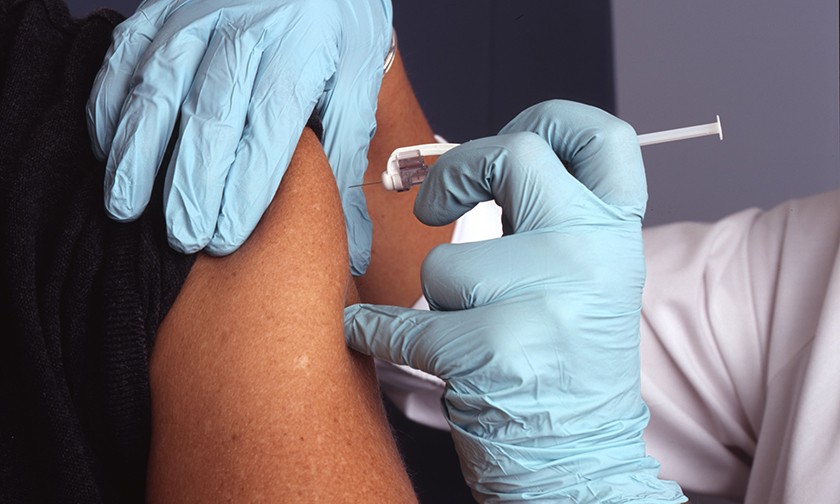
Photo: Unsplash
Myth 12. I got vaccinated, so now I can avoid wearing a mask.
Vaccination is not a sign which tells the virus that this person got vaccinated and so it will not infect him or her.
Vaccinated people can be carriers of the infection. The likelihood that they will infect someone is small, but it may persist in special situations. For example, with very close contact, say, between spouses, or if the vaccine was not effective for a particular person. It is also worth remembering that there are people with immunodeficiencies of various natures who can probably get infected from a vaccinated person even when the concentration of the virus in the upper respiratory tract is low.
And the most important thing is the psychological moment. A person who stops wearing a mask has a very bad effect on other people.
If some people stop wearing masks, it will be psychologically easier for the rest to take off their masks, including those who have not been vaccinated and have not been sick. And this can again lead to a sharp increase in the incidence.
Therefore, wearing a mask after an illness or vaccination is necessary in order not to contribute to the massive rejection of masks. Especially considering that there are many covid dissidents in society, and people are simply tired of restrictions.
When talking about infectious diseases that are easily transmitted, one cannot think only about one’s own safety. It is important to think about how your actions will affect collective security, because ultimately our own security depends on collective security. It is irresponsible and very stupid to behave according to the principle “I protected myself, and I don’t care what will happen to other people”.












